
The ISUZU Refuse Compactor Truck, as an essential piece of urban sanitation equipment, not only enhances the efficiency of waste disposal through proper operation and usage but also extends the vehicle's lifespan and ensures operator safety. This article provides a detailed overview of the operation methods and operational precautions for the ISUZU refuse compactor truck, helping you better utilize this equipment.
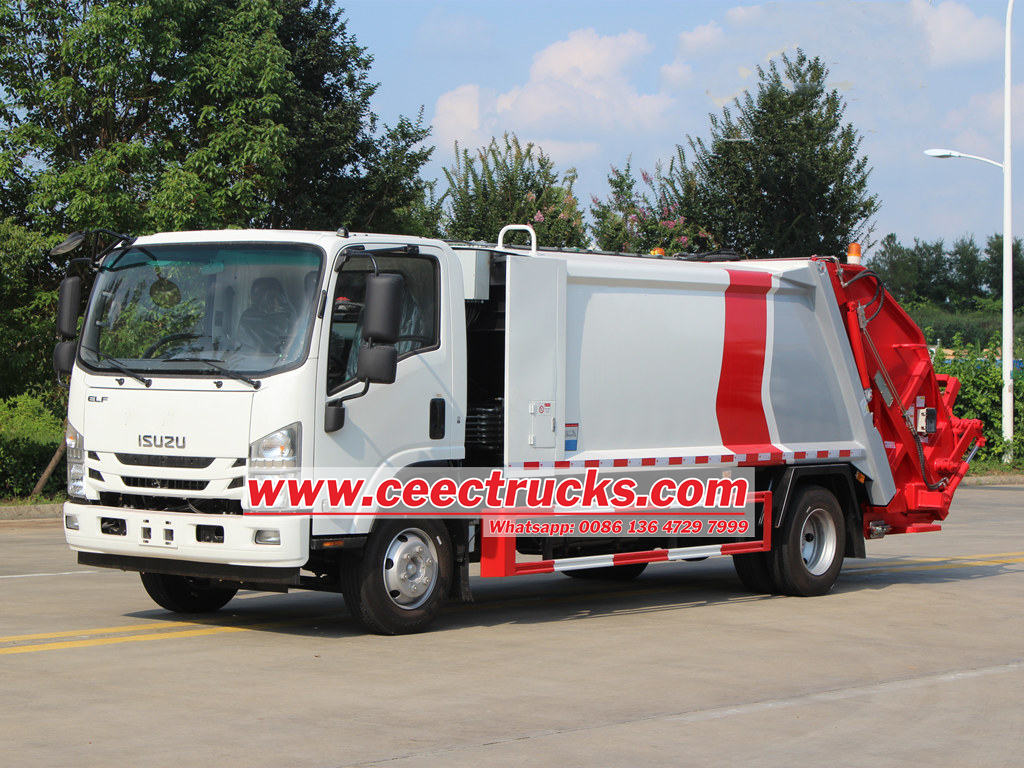
Operation Methods for the ISUZU Refuse Compactor Truck
1. Preparations Before Operation
Before operating the ISUZU garbage compactor truck, certain essential preparations must be made to ensure smooth and safe operation:
• Vehicle Parking: Park the ISUZU refuse compactor in a designated location on a flat and stable surface, engage the parking brake, and shift the transmission to neutral.
• Air Pressure Check: When the chassis air pressure rises above 0.7mpa, press the clutch and engage the power take-off (PTO) switch to prepare for operation.
• Safety Devices: Inspect all safety devices for integrity, including the loader locking mechanism, control buttons, and sensors.
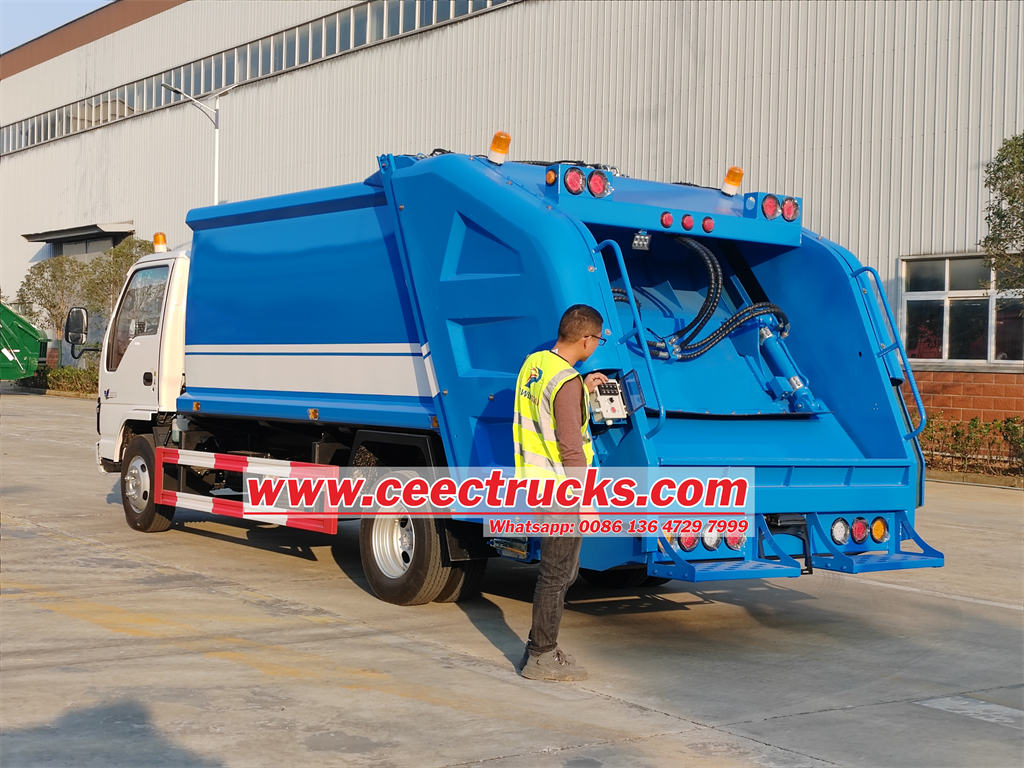
2. Compression Operation
Compression operation is one of the core functions of the ISUZU refuse compactor truck. The specific steps are as follows:
• Start the Engine: Adjust the engine to idle speed, press the power switch, and select the "Compression" mode.
• Open the Loader: Open the loader cover and operate the "Lift Bin" function on the rear control box to load garbage.
• Compression Process: Press the compression cycle start button to begin the compression operation until the push plate returns to its position and the garbage compactor is full. During compression, the scraper opens, and the slide plate moves downward with the scraper, inserting into the garbage to crush and initially compress it. The scraper then rotates forward to further compact the garbage. Once the scraper is in position, it moves upward with the slide plate, compacting and loading the garbage into the bin, and then returns to its starting position. This entire process is automatically controlled. As garbage is continuously compressed, the pusher retreats under the extrusion force, achieving bidirectional compression and evenly filling the entire garbage bin.
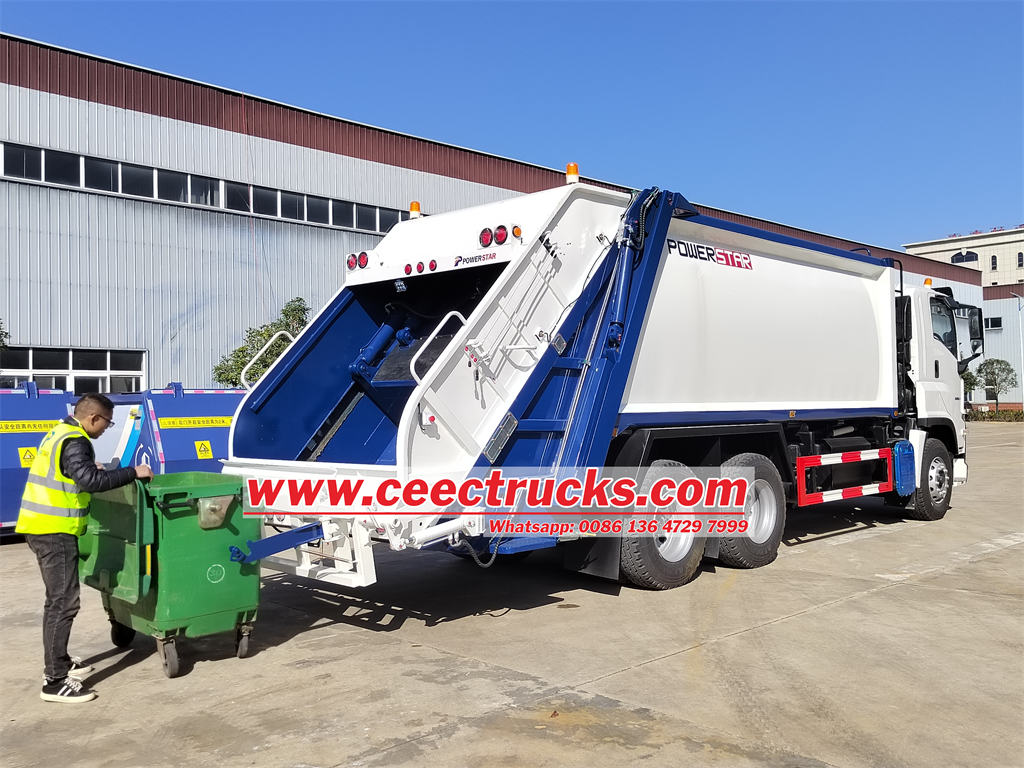
3. Discharging Operation
Discharging operation is equally important and requires correct operation to ensure smooth garbage unloading:
• Select Mode: With the engine at idle, press the power switch and select the "Discharge" mode.
• Lift Loader: Select the "Lift" function to raise the loader to its highest position.
• Eject Garbage: Select the "Eject" function for the push plate to unload the garbage from the compactor. After confirming complete unloading, retract the push plate and select the "Lower" function for the loader until the hook is securely locked.
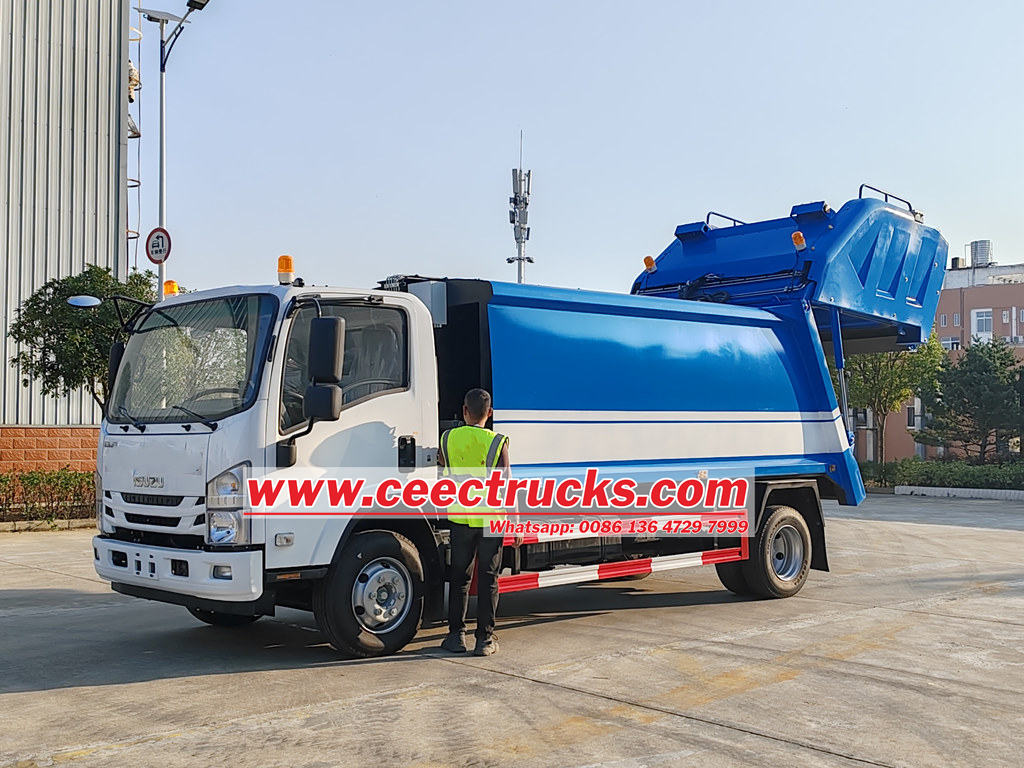
4. Braking Operation
During the compression cycle, if an abnormality occurs (e.g., jamming by a foreign object), immediately press the "Brake" or "Emergency Stop" button on the rear control box to stop the operation. Resume operation by pressing the compression cycle button after troubleshooting.
5. Post-Operation Procedures
After each operation, some final steps are necessary to ensure vehicle safety and smooth progression of the next operation:
• Lift Mechanism: Operate the "Bin lift" function on the rear control box to keep the lifting mechanism in the lifted state.
• Disengage PTO: Press the clutch and disengage the PTO switch.
• Turn Off Power: Press the power switch to turn off the power.
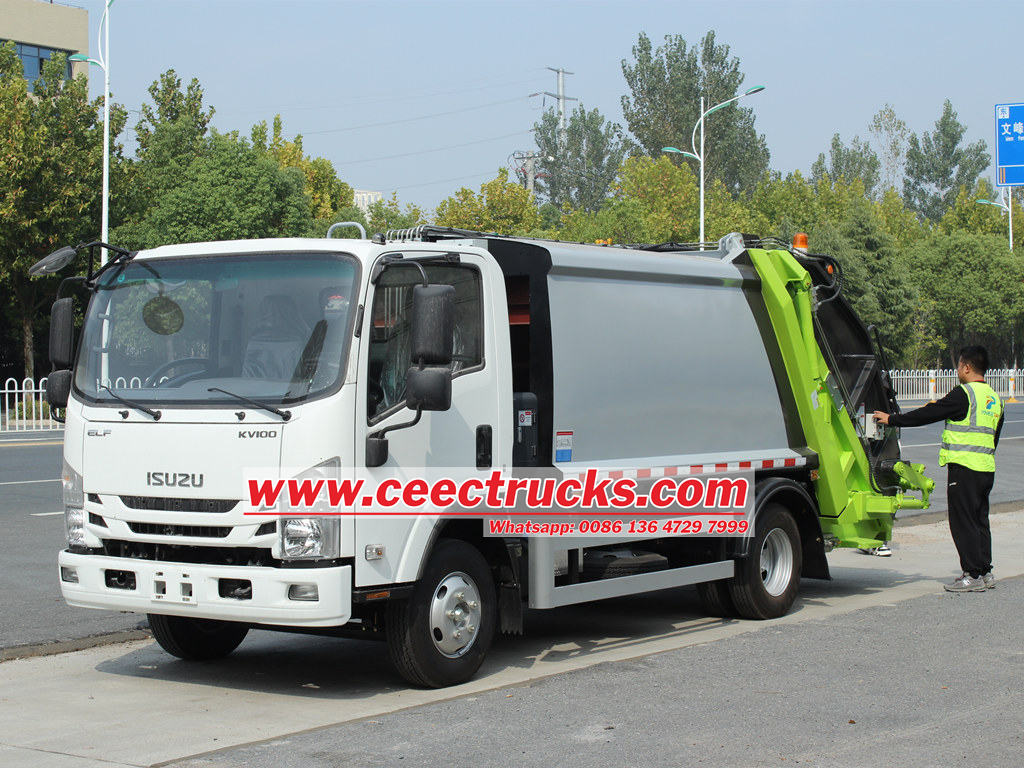
Operational Precautions for the ISUZU Garbage Compactor Truck
To ensure safety and efficiency while operating the ISUZU rear load garbage truck, the following precautions should be observed:
• Loader Lifting: When the loader is lifted, personnel are strictly prohibited from standing or walking underneath. For maintenance work, securely support the loader with sturdy brackets to prevent accidents.
• Garbage Loading: Garbage should be evenly placed into the loading chute to avoid overloading or uneven loading, which may damage the equipment or disrupt operation.
• Locking Mechanism: The vehicle must not be driven until the loader is lowered and locked. During driving, ensure the loader is securely locked.
• Post-Discharge Cleaning: After discharging, clean the interface between the garbage compactor and the loader to prevent residual garbage from causing leakage or equipment damage.
• Avoid Water Spray: When washing the vehicle, avoid directly spraying water onto electrical components and the fuel tank air intake to prevent electrical failures or damage.
• Maintenance Precautions: During maintenance, avoid dropping, bumping, or striking parts to prevent damage, deformation, or scratches. When disassembling or assembling the hydraulic system, ensure cleanliness to prevent debris entry.
• Pressure Adjustment: The system pressure is set at the factory and should not be adjusted by users. Unauthorized pressure adjustments may lead to equipment damage or safety hazards.
• Safety Warnings: Avoid lifting the loader on slopes to prevent vehicle slippage or equipment damage. During loading and unloading operations, do not arbitrarily change the throttle control cylinder position to maintain operational stability and safety.